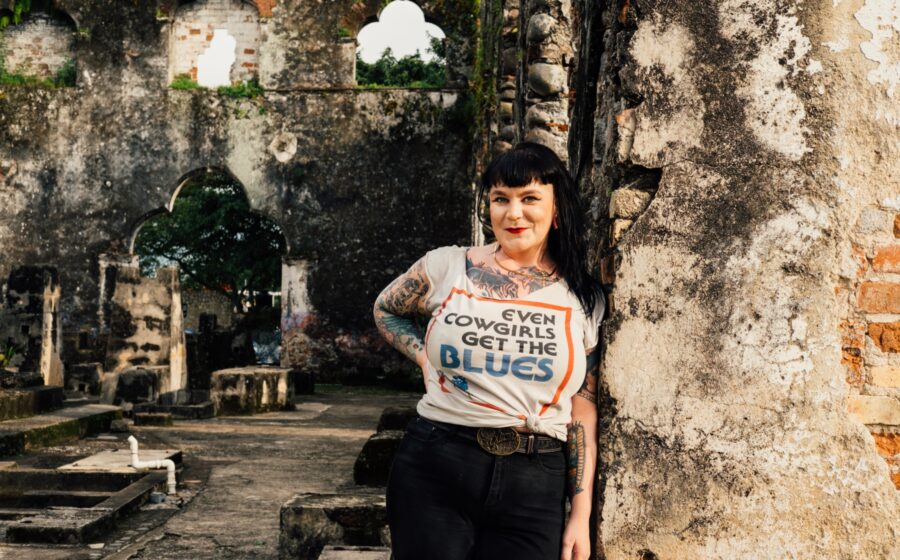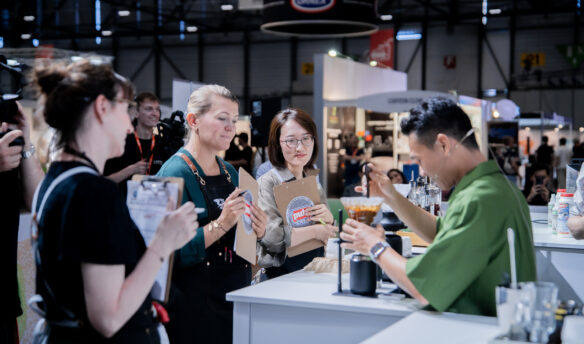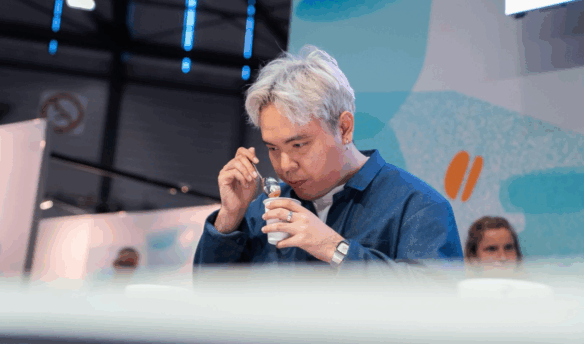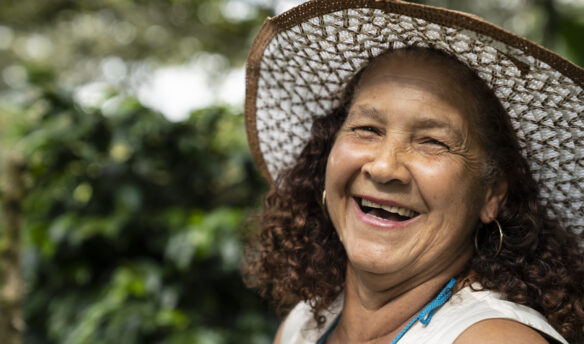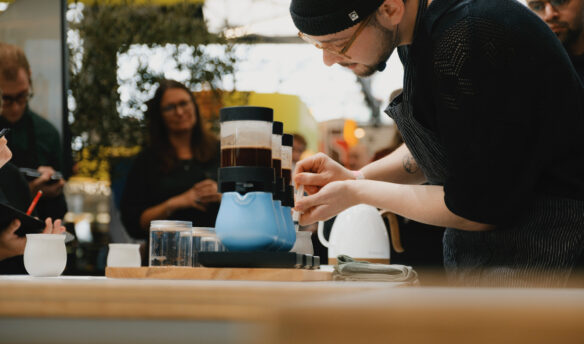As a coffee consultant who helps companies build out their sourcing, green-coffee importing, and roasting operations, Rachel J. Apple is driven by the imperative to share knowledge. But her desire to make coffee education more accessible has decades-deep roots.
During the early days of her career, when she worked as a barista, Apple had to rely on a battered and beaten copy of “The Professional Barista’s Handbook: An Expert Guide to Preparing Espresso, Coffee, and Tea” to learn anything about the shots she was pulling and the espresso she was drinking.
It was one of the only books about coffee science that was available at the time, and she remembers its tone being challenging and stern. “Even then, I wondered, ‘Why is this author mad at me for reading this book?’” she says. That difficulty inspired Apple, throughout her subsequent two-decade career in coffee, to prioritize sharing knowledge and making room for others in the industry.
As a coffee consultant in Boston, Apple has worked with companies like Cometeer, George Howell Coffee, and CropConex. She’s also a head judge for the Cup of Excellence—a global competition and auction that celebrates coffee quality and connects farmers to roasters—and teaches classes and workshops, including a recent virtual series on roasting operations with fellow consultant Sandra Loofbourow.
Throughout her career, Apple has never forgotten the challenges of being a new barista trying to figure out how to learn more about coffee. Even with today’s tools, like YouTube and TikTok, good education can be hard to come by, and Apple sees her job as striving to make information more accessible and approachable. She’s also used to being the only woman in the roastery or the cupping room, and she’s determined to open space for others in an industry that can still feel closed-off.
Above all else, Apple believes that everyone deserves a seat at the table. In our recent conversation, we chatted more about her early days in the industry; why passing on generational knowledge matters; and how new baristas can build their careers, seek mentors, and harness information to push the coffee industry forward.
Why is sharing knowledge so important to you?
I do a lot of teaching and helping people get access to things that previously had been hard to access. And I know there is so much more than when we started in coffee, but when I was a barista, educational resources felt so gatekeep-y. It felt like, and sometimes still does, that you have to be the coolest one in the shop to be the barista.
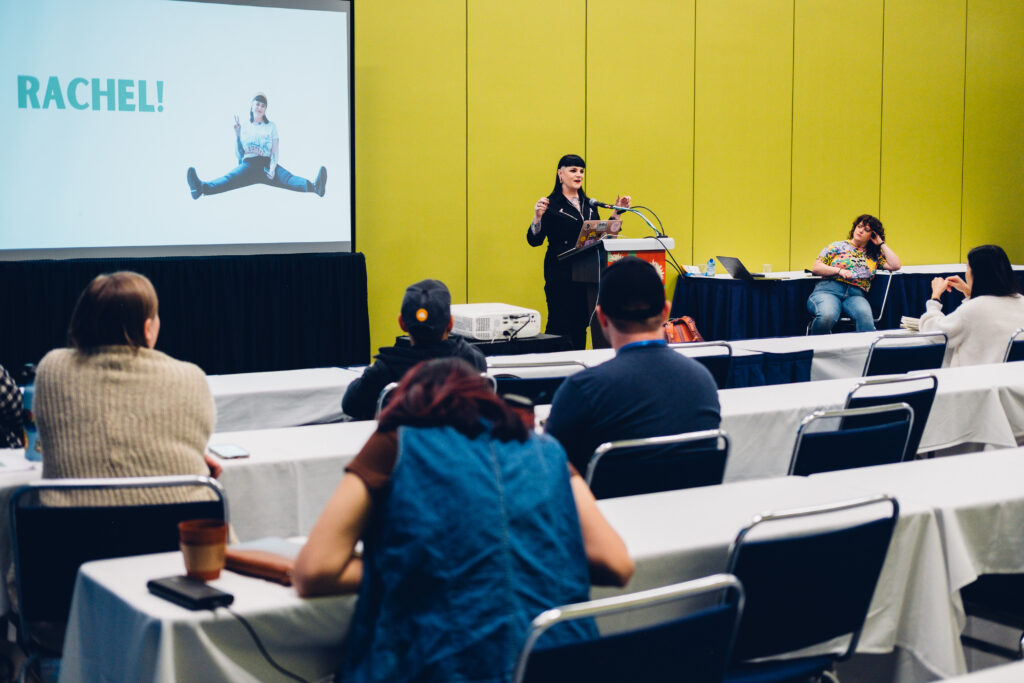
As a result, my whole perspective and approach to coffee is to be a welcoming committee. I joke that everything that I’ve learned up to this point, I begged, borrowed, and stole. I don’t want that to be the case for the next generation of coffee people.
I’m an auntie’s age at this point. I love watching young folks and coffee people find themselves in coffee, but I also think it’s challenging to ask for knowledge. I think it’s even harder to ask for knowledge when you’re in your 30s, 40s, and 50s and you find yourself in this industry. We’re such a trust-driven and relationship-driven industry that when someone is new, it can feel really intimidating.
How has access to coffee knowledge changed over your career?
I’ve seen a generational shift as we now have folks who grew up fully with the internet in their lives. There are so many tools available for learning, and that creates shortcuts to these heuristics. There’s a surface-level knowledge of something that doesn’t come through a study of it or a doing of it, and I think it’s so great that we have collective knowledge that we can share.
But there are some things that you have to learn inside your body, that you learn from doing. How do you learn roasting? It’s repetition. You put real time in front of a machine, and you learn that machine, and you learn how to roast on that machine.
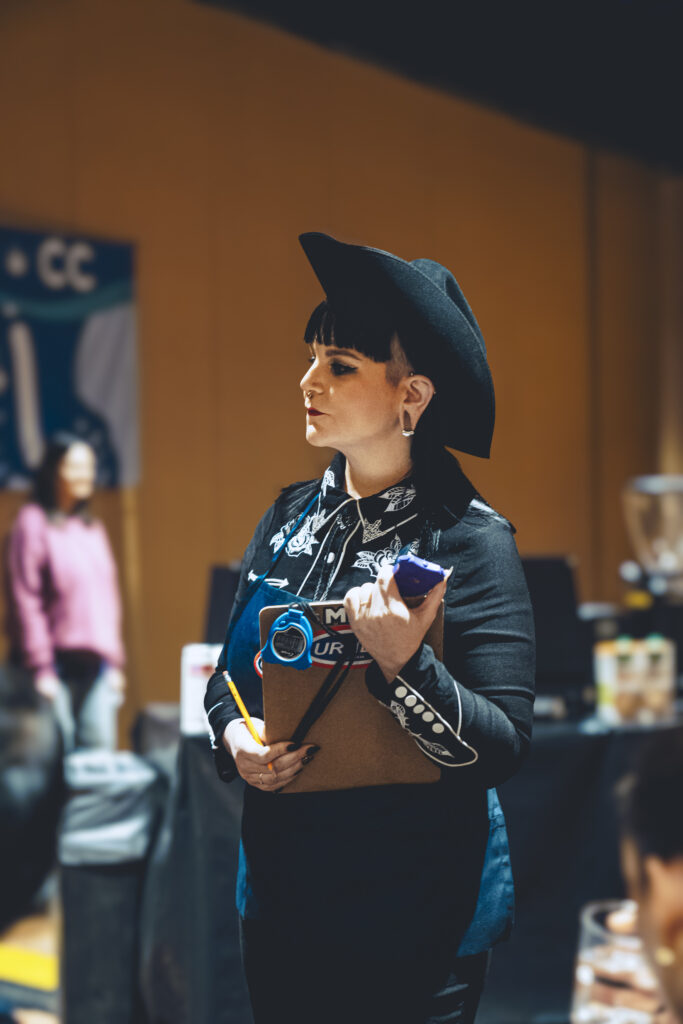
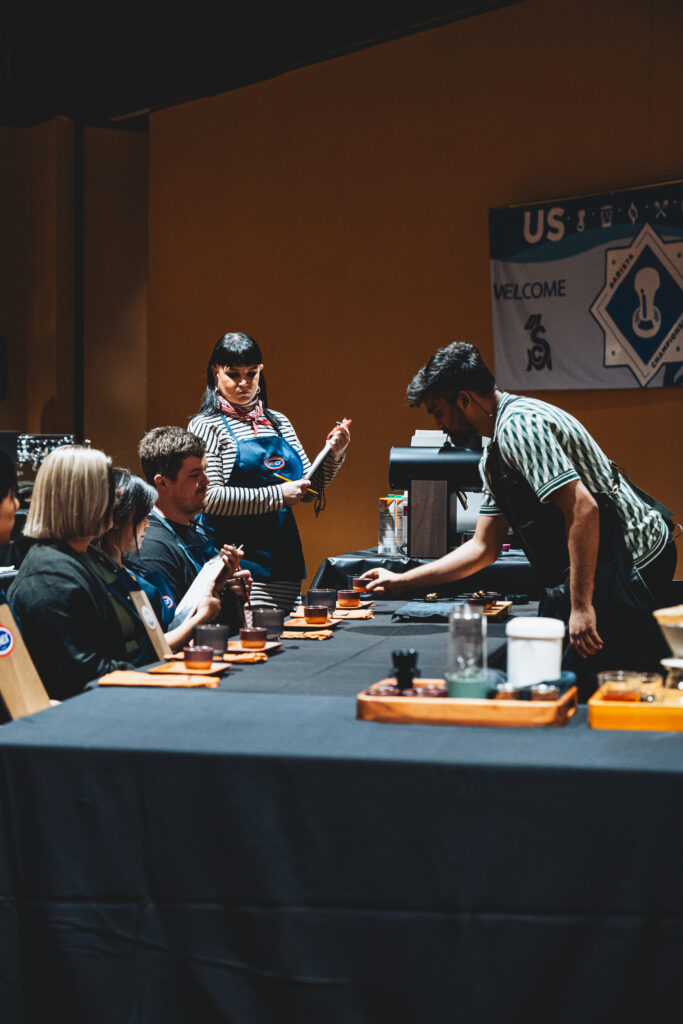
At one job, I worked on the same roaster for six years, and I knew that roaster so well. I knew the smells and the sounds and the clunks, and when it was time for certain maintenance based on the interaction, and when exactly I needed to drop a roast. Sometimes I ask, with so much available online, what knowledge has been lost? I think, with so much information online, that tactile learning sometimes gets overlooked.
What advice would you give to people who are trying to learn more about coffee?
Sometimes, you just have to be in a room and do the thing—whatever the thing is—and listen to people who have been in the room longer than you have.
When I was younger, I didn’t listen to others—at least not with the same patience and enthusiasm that I had for being heard. We all love coffee, and we want to prove that we are good at it in one way or another. But when you jump over someone who’s trying to show you something new, whether they’re on a stage giving a talk or they’re standing with you next to the machine, you shut down the flow and transfer of information.
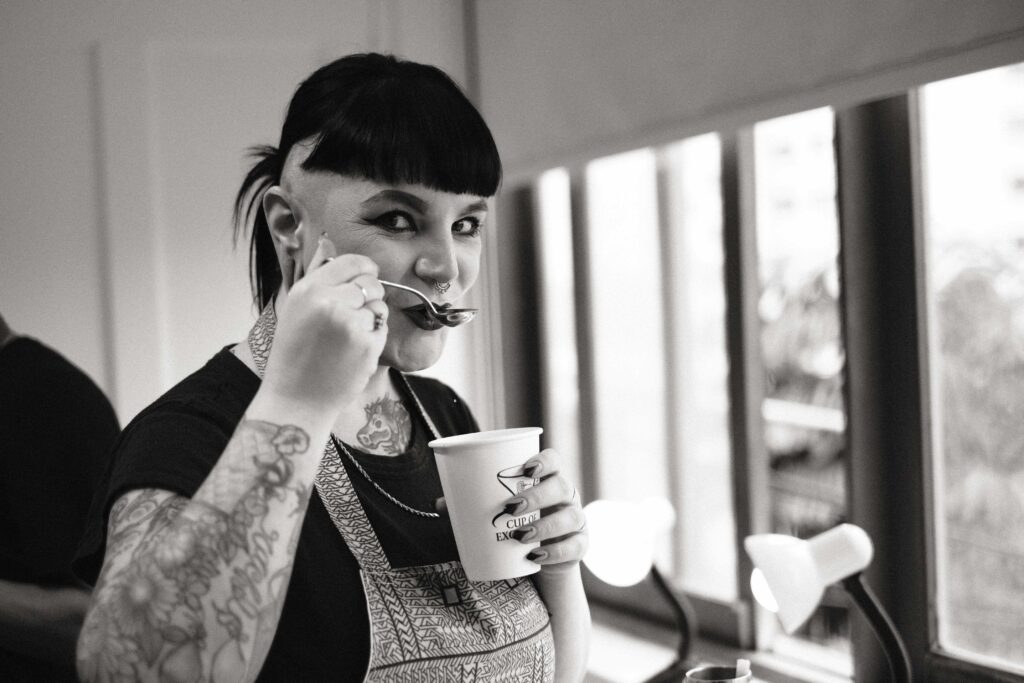
And sometimes, if you have a really good, patient teacher, you can jump all over them, but eventually they’ll stop trying to teach you. We have to be open to hearing different perspectives and learning new techniques.
For example, I’ve been trying to teach younger baristas to take care of their bodies. Not everybody has a PUQpress that automatically tamps for you, and my body will never recover from 10 years of tamping. Let me help you with your arm placement and proper form and save your body from what my body had to go through.
What recommendations do you have for people seeking mentors?
I have a big passion for mentorship. If you see someone you respect, just tell them and ask them to be your mentor. But I get that it can feel so vulnerable to ask.
It’s also hard to go about offering mentorship. I think there are some ways to say, “I’m offering this to the world,” and a lot of that people do through social media. But I think there is also a whisper network of people who will be more than happy to engage in mentorship, but maybe don’t even view themselves in that way.
I think to build a good mentoring relationship, you have to have mutual respect for one another. Because outside of that, it’s paid ministry. You can hire someone to coach you and give you advice, but true mentorship comes from long-term investment that is relationship-based in some capacity.

Everyone has finite resources, and I think it’s finding the right match for your goals. All of the competition bodies are great ways to plug in and learn. You get access to people who don’t always have open-door policies or the bandwidth of their time to take on one-on-one mentorship. But you get these concentrated weekends of training and repetition, which is a powerful tool. You put in the reps of networking, even in these structured environments, with like-minded nerds who are all there for the same reason.
When you expose yourself to people like that, you get inspired by what they do. My skillset involves tasting, and that didn’t come from coffee. That came from a line of women I grew up around working in the kitchen. My mom would go to this restaurant called Cafe 501 in Edmond, Oklahoma, and get this spinach, pear, blue cheese, and walnut salad. We would taste this dressing it was her favorite dressing in the whole world—and she would reverse-engineer it ’til we could make it at home.
However, I didn’t consciously put that understanding of taste with coffee until seven or eight years into my career. I always wanted to concoct new things and try new flavors, and I was able to with the guidance of strong mentors.
When you’re looking for a mentor, ask yourself, “Who do I look up to?” But also expand your definition of what a mentor is or what skills might be useful to learn. Who do you admire, and can you spend more time learning from them? Sometimes the key to mentorship and learning is buying a ticket to a workshop or going over to them at a party and saying hi. Largely people are kind and warm. But you have to take the scary step of asking.
This interview has been lightly edited for clarity.



